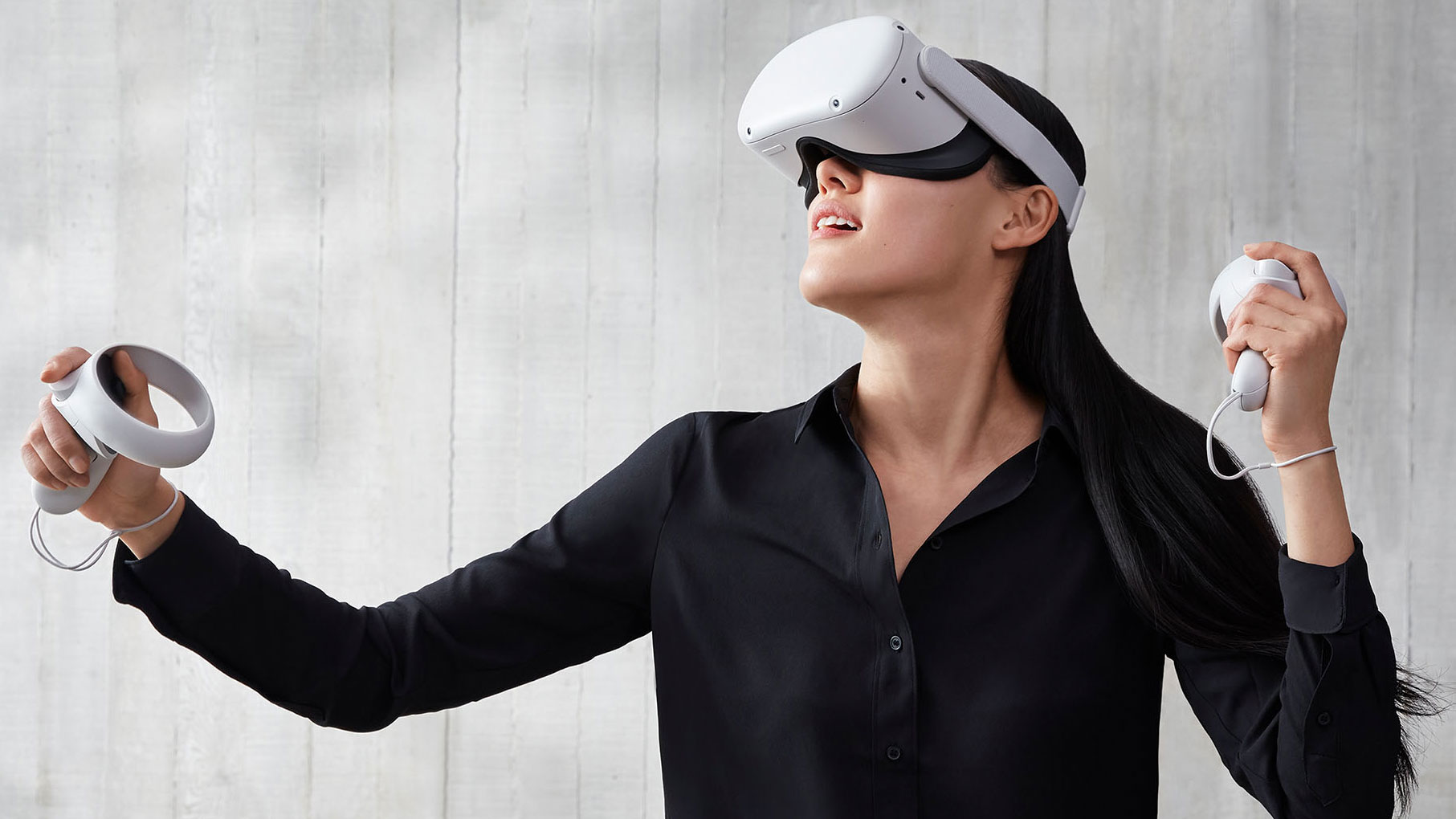Oculus Move VR could sync with Apple Health – and that really matters

Lines of code spotted in the Oculus VR app suggest that the Oculus Move’s fitness tracking could soon be integrated into Apple Health, the tech giant’s own bespoke fitness tracking software that’s popular among iPhone and Apple Watch users.
The code, spotted by Bloomberg, would seemingly allow Oculus Move statistics – such as burnt calories and movement time – to be transferred to Apple Health, which would count your Oculus Quest 2 activity as part of your overall exercise routine.
- Oculus Quest 3: rumors, predictions, and likely release date
- Best VR headsets: Oculus Quest 2, PSVR, Valve Index and more
- Apple VR headset release date, news, price and what we want to see
Oculus Move first launched around a year ago, and while it's a relatively simple affair – effectively showing VR gamers some basic fitness metrics – it does offer Oculus headset users the beginnings of some useful stats while they enjoy VR software.
It doesn’t have quite the feature suite as Apple Health, which could be why Oculus is looking to integrate its own statistics, ultimately allowing for a broader spectrum of daily fitness tracking.
That being said, while such code has been discovered within the Oculus VR phone app, it’s possible that it’s just there for testing purposes and nothing may come of it. But on a more positive note, it’s a good sign that such features are being tested at all.
Analysis: what do Oculus VR users get out of this?
It shouldn’t be understated that VR can be a physically intensive activity. Virtual reality hits like Beat Saber almost require the user to stay kinetically engaged with the title. As such, Oculus Move seemed like a no-brainer addition when it was released last year.
As it stands, Oculus could see a partnership with Apple as making a bit more business sense than continuing to develop its own app that many Oculus users might not even use. While not every Oculus headset owner will be overly concerned with tracking their exercise, many of them will own iPhones and Apple Watches. Seeing their Oculus Move stats roll into Apple Health could be a novel feature, then, and potentially encourage fitness activities beyond VR sessions.
Sign up for breaking news, reviews, opinion, top tech deals, and more.
We also wouldn’t be at all surprised if the code discovered in the Oculus VR app comes to fruition. We’ve recently seen tech companies show signs of being more willing to play ball with one another, as evidenced by the Matter smart home initiative that consolidates over 170 tech companies under one unified smart home brand.
Folding your Oculus Move stats into Apple Health can only serve to make Apple’s fitness tracking that much better, and more accessible to users who might not go out of their way to track their exercise. Not to mention, as the end of the Covid-19 pandemic remains uncertain, better fitness integration between apps could be beneficial for those still encouraged to stay at home.
- Not just for VR: Oculus Quest 2 takes on Magic Leap with AR tech

Rhys is TRG's Hardware Editor, and has been part of the TechRadar team for over four years. Particularly passionate about high-quality third-party controllers and headsets, Rhys strives to provide easy-to-read, informative coverage on gaming hardware of all kinds. As for the games themselves, Rhys is especially keen on fighting and racing games, as well as soulslikes and RPGs.